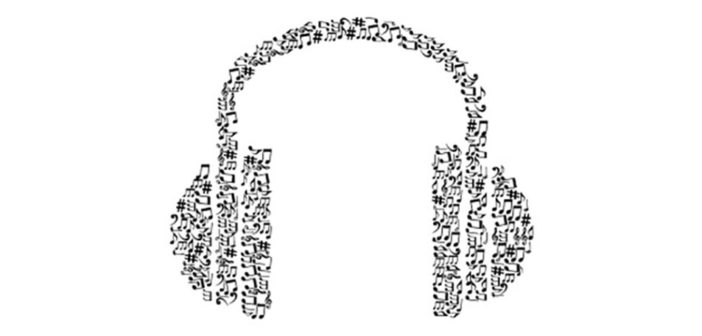Dr. Jiang: From music to conversations to natural ambient sounds to even silence, sound certainly brings more harmony to our lives. Many technologies have allowed us to do more with our sense of hearing, but we need to better protect our ears now more than ever. In this edition of Doctor’s Corner, we invited Dr. Jiang Xiaobing, chief of ENT Department at OASIS International Hospital, to talk about why we should be all ears when it comes to protecting hearing.
Let’s be a little bit technical: Can you explain briefly how specialists measure the loudness or softness of sound/audio? And what’s the maximum sound adults and children can tolerate without damaging the eardrum?
Dr. Jiang: Sound is usually measured as follows: quiet (below 30 decibels [dB]), normal (40dB), normal conversation (40-60dB), noisy (over 60dB), loud (85dB, with prolonged exposure leading to hearing loss), and extremely loud (90-130dB leading to discomfort, hearing loss and earache, with sound over 130dB leading to chronic damage of eardrum).
Some people, such as infants or pregnant women, are more susceptible to noise. For example, prolonged exposure to noise levels of over 50dB by a pregnant woman can affect the growth and development of the fetus.
What’s the effect of using headphones and earphones on the ear?
Dr. Jiang: Prolonged usage of earphones can cause hearing loss as they block the auditory canal and direct sound onto the eardrum within a closed small place. Excessive use of earphones can damage the auditory system (hair cells) and induce hearing loss. I suggest:
– Choosing high-quality earphones that reduce the volume to soft, not harsh levels;
– Not using earphones continuously or long-term. For adults, 3-4 hours per day is enough and for adolescents, it’s 1-2 hours per day;
– Taking a break from listening every 30 minutes;
– Not using earphones while walking or riding as you may easily adjust the sound level to a higher volume; and
– Not falling asleep with earphones on especially they may worsen infections or diseases due to blocking and rubbing.
Many young children are exposed to gadgets that can emit a loud noise. How do loud noises affect the development of their ear and hearing?
Dr. Jiang: Young children’s fragile auditory organ can be easily damaged by loud noises as their ears and nervous system have yet to fully mature. Loud noises within the home are the main causes of hearing loss in children as they can break the eardrum and make it bleed. At home, it is recommended that no more than two loud appliances should be switched on at one time. The level of noise should be maintained below 60 dB and electrical appliances should not be switched for prolonged periods and never put near a child’s bed.
What are symptoms of hearing loss? And what are the ways to help the ear recover from partial hearing loss?
Dr. Jiang: Hearing loss can be classified as acute or chronic. For adults, acute hearing loss can be easily identified. But for most people, it’s difficult to pinpoint when exactly chronic hearing loss has begun. For children, if they like adjusting the TV volume too high or don’t respond to others as before, they might be experiencing hearing loss.
Hearing loss may be accompanied by tinnitus, earache, ear blockage, and vertigo. If you suspect hearing loss, you should see a physician about it. Prompt treatment and rest are conducive to restoring hearing loss. Some kinds of hearing loss, especially those going without a diagnosis, can be difficult to recover from. Prevention of hearing loss in children should begin even before pregnancy, by maintaining good habits within our daily life.
Giving ourselves enough rest, avoiding loud noises, not using drugs that can cause adverse reactions in the ears, maintaining good ear hygiene, as well as properly and promptly treating ear disorders such as colds, are all important to preventing hearing loss.
This summer, many families will go to the beach and swim! There will be moments that water will enter the ear. Is this something bad? What are the ways to prevent water from entering the ear canal?
Dr. Jiang: When you have a cold, acute upper respiratory infection, otitis media, and similar conditions, you should avoid going swimming. Swimming introduces the risk of water entering into the auditory canal (middle ear). Before swimming, it would be advised to check with your physician for any unknown ear disorders or infections, or possible excessive earwax needing cleaning. Water in swimming pools must meet certain quality standards, but rubber swim caps and earplugs can be used to prevent water from entering into the auditory canal. You should never pick your ears with anything hard after swimming, in case of damage to the auditory canal or eardrum. If water has entered your ear, try bouncing on one foot to shift the water from your ear.
About the Doctor

Dr. Jiang Xiaobing, Chief of ENT at OASIS International Hospital, has extensive work experience in clinics, teaching, research, and healthcare. He is especially focused on the diagnosis and treatment of nose and sinus diseases, obstructive sleep apnea-hypopnea syndrome (snoring) including adenoidal hypertrophy and tonsillar hypertrophy in children.
 This article appeared on p24 of beijingkids June 2018 issue
This article appeared on p24 of beijingkids June 2018 issue
Photo: GDJ via Pixabay; Courtesy of BJU




